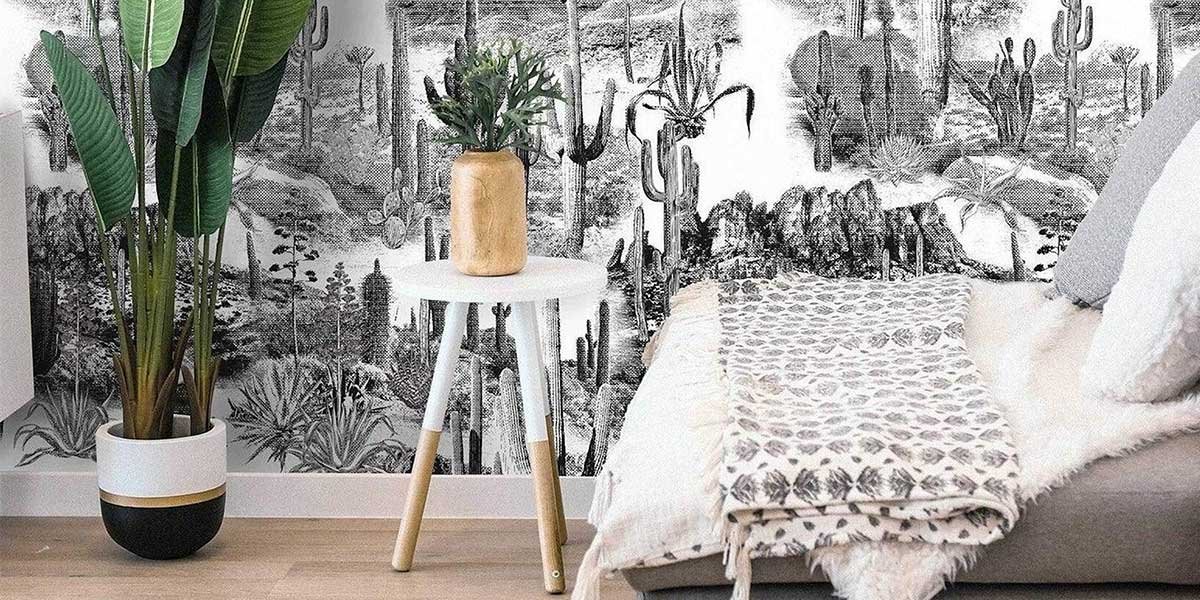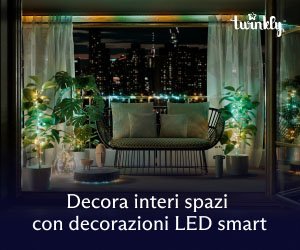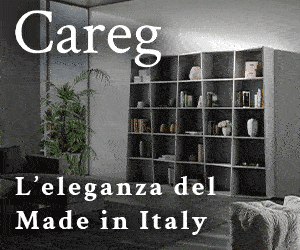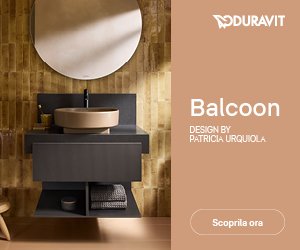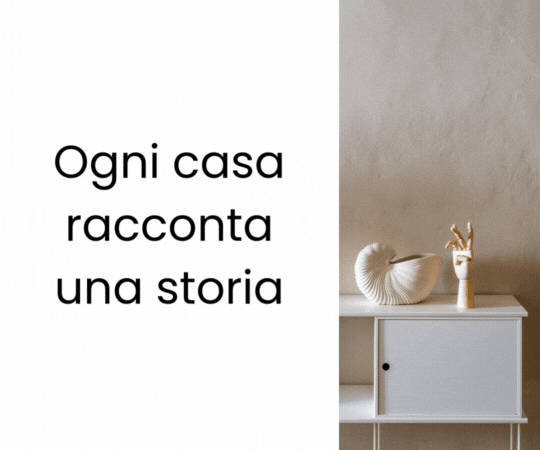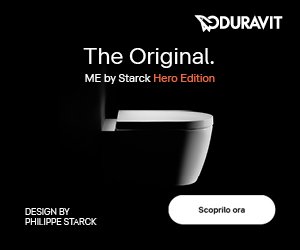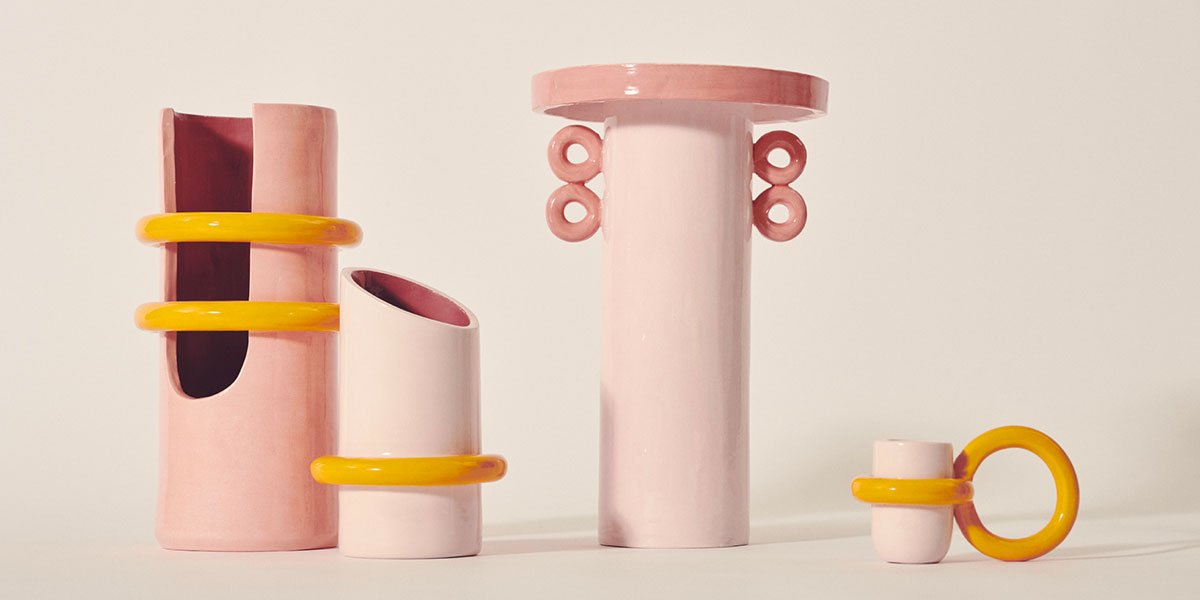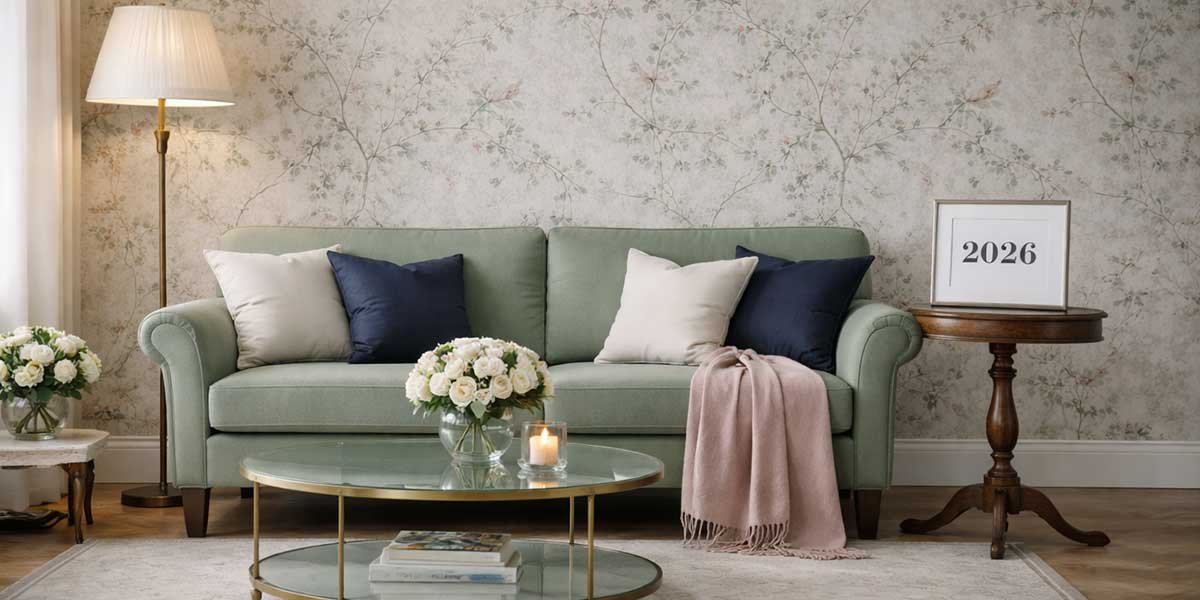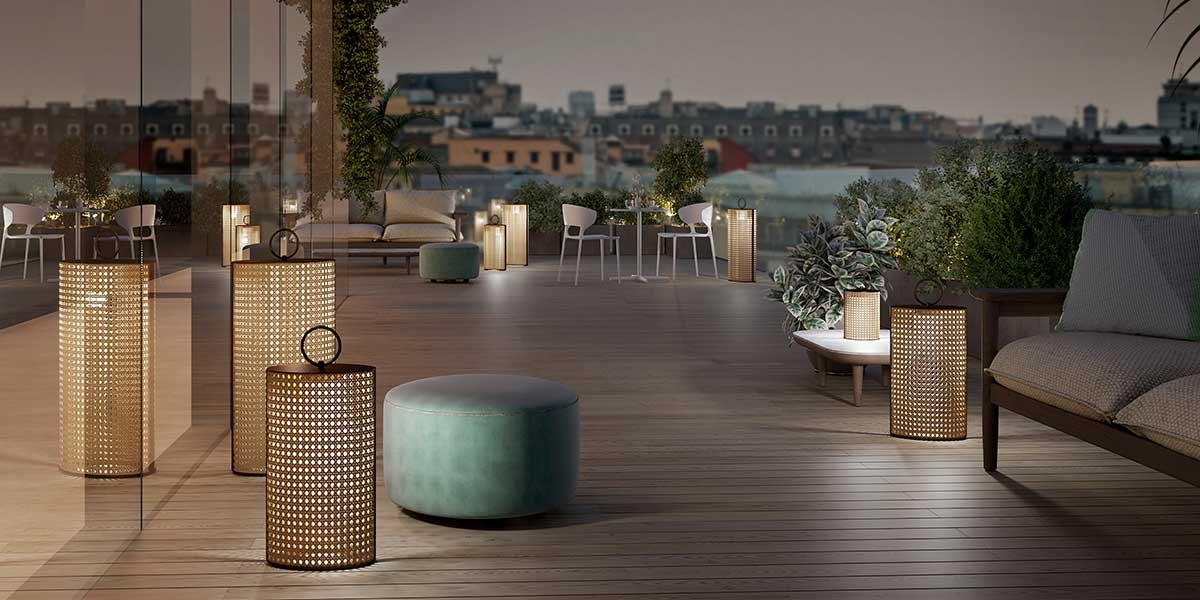There are several tricks to revolutionize a space and transform its dimensions, seemingly: style choices that optimize and make interior design versatile and full of character.
Whether it’s an apartment or just a room, a small space can be made larger thanks to colors and tailored wallpapers, objects with clever volumes (and geometries), or by playing with the heights of furniture, thus gaining meters and volumes. As suggested by Cristina Mello Grosso, an interior architect, “when furnishing a space, it is possible to use tricks that deceive the eye, enlarging the available space and giving a totally different visual perception to the actual square footage. Small rooms only require a minimal amount of flexibility and, above all, creativity.” Let’s see how.
1 – PLAYING WITH COLOR
Colored ceilings combined with light-colored walls – even tone on tone – significantly expand the space. White alone, in fact, contrary to what one might think, does not make a room bigger: the perception of a more open and airy room is achieved with soft tones, such as light blue and pink. If you want a more “cozy,” intimate environment, go for earth tones and bolder shades: colored walls and ceilings will create a cozy and welcoming atmosphere that makes you forget the smallness of the space.
There are countless shades to play with, such as those produced by File Under Pop, in collaboration with Jotun Denmark, over 96 color shades developed by creative director Akvama Hoffemeyer, who has been in the surface decoration sector for 20 years.
An example of a ton sur ton combination of soft tones by Pitture File Under Pop – fileunderpop.com

2 – LOW IS BEAUTIFUL
If space is limited, never choose too tall furniture, which would give a feeling of claustrophobia; it’s better to prefer smaller-sized pieces, perhaps placed in the middle of the room so they seem like dividers. If possible, a light structure that does not block the view is preferable. Then, of course, you also need to consider the shape of the room itself, whether it’s square – with space in the center that wouldn’t be used – or rectangular, in which case the rhythm can be broken with low and not too bulky furniture.
The double-sided bookcase Drop by designer Nendo for Cappellini allows, thanks to its column structure, to play with geometries and solids and voids. With its slim profile in laser-cut metal sheet, it can be used as a real divider or, in the lower version, as a bedside table.
More volumetrically significant but with the same double-sided functionality, the Air bookcase by Lago, which thanks to its “free from constraints” design and extra-clear glass walls, holds objects as if they were suspended.
Drop bookcase by Cappellini, design Nendo – cappellini.com

Libreria Air by Lago – lago.it

3 – HERE… AND NOT HERE
Foldaway furniture is one of the most ingenious solutions for small spaces, allowing you to optimize volumes and use furniture only when needed: there are super functional ones with a desk that “appears” only once the bed is closed. Similarly, it is optimal to use recessed furniture in niches: they will retain their function without taking up valuable space.
This is the case with the Protek company, which designs container frames, like the Bigfoot® collection, available in many variations like pantry, shoe cabinet, or utility room. Thanks to the company’s patent, the modules slide inside the plasterboard wall and can be extracted when needed, revealing their contents.
Another valuable space-saving solution is the Murphy bed: Tumidei’s On Off is an upholstered piece that manages two components like the bed and the sofa, which, thanks to an advancement of the seat cushion and backrest cushion, allows you to open the bed to a queen size. On Off is available both as a single version like an armchair and as a two-seater sofa.
The Protek Bigfoot® container counterframe system – protek-controtelai.com

Letto On Off byTumidei. composed of sofa and bed, in closed and open versions – tumidei.it


4 – ATTENTION TO LIGHT
Light plays a fundamental role in adding quality and atmosphere to a room, but to give more rhythm and movement, it’s best to avoid a single light source, differentiating the types with pendant lamps, wall sconces, and floor and table lamps to create contrasts between bright and less bright corners, increasing the sense of spaciousness.
Flexible and directional, the Cicloitalia Flex spotlights by Catellani & Smith are a series of contemporary-looking light points – in white or black with brass details – capable of orienting the light as desired, amplifying the reflection thanks to the round shape of the glass lenses.
Even a floor or table lamp can be a diversion, like Glo-Ball Table 1 designed by Jasper Morrison for Flos: a globe that diffuses diffused light thanks to the opaline coated glass sphere, with a steel base and stem with dimmable light.
Cicloitalia Flex spotlight by Catellani & Smith – catellanismith.com

Glo Ball by Flos, design Jasper Morrison – flos.com

5 – REFLECTIVE POWER
Whether placed on walls or cabinets, mirrors are one of the most used tricks to give a new perspective to the room: their reflective power literally multiplies the space. Even a thin or even frameless frame can help with the “spaciousness” effect; moreover, if placed on both sides of the room, they provide greater depth and increase brightness.
Even a mirror placed above a sideboard increases its visual power. If, as Versailles teaches, they are placed in front of a window, we gain in brightness (and beauty).
Déjà-vu by Magis, designed by Naoto Kukasawa, is a large mirror – in rectangular or square versions – with a frame in extruded polished or painted aluminum to be leaned or fixed to the wall, enhancing its reflective power.
Mirrors on wardrobe doors are also very useful, not only for dressing but also to help the environment feel lighter. An example? Diotti’s Mirror Player, a tambourine sliding wardrobe with 2, 3, or 4 mirrored doors with an oak frame and structure, modular in different sizes, perfect for giving breath to the sleeping area.
Dejà-vu wall mirror by Magis, design Naoto Kukasawa, available in the 105×105 cm or 73 cm x 137 cm versions – magisdesign.com

Mirror Player by Diotti, sliding wardrobe with mirrored doors – diotti.com

6 – TRICKING THE VIEW
The Romans already knew it: a beautiful landscape on a wall gives the impression of looking out of a window. So go ahead with wallpapers featuring hills and landscapes, or walls that create trompe l’oeil windows, imaginary places, and open spaces.
Like Farrow & Ball’s Gable wallpaper, representing pastoral scenes with villages and farms but with a clean, modern line, dotted with small details and available in 9 variants. In this case, it’s a good idea to keep the ceiling white. For those who prefer dreamy landscapes, Wallpaper4beginners offers a wide range of imaginary landscapes, such as deserts or imaginary cities, all made with vegan ink.
Gable wallpaper by Farrow & Ball (roll size 53cm by 10 metres) – farrow-ball.com

Cactus Landscape Wallpaper by Wallpaper for beginners – wallpapers4beginners.com

7 – SUSPENDED FURNITURE
In any room, a “suspended” piece of furniture allows you to take advantage of the space below: this is the case with cabinets and shelves under which you can place a sofa or a desk. And if the ceilings are high, you can exploit the verticality (and equip yourself with a good ladder to lean against!).
For a perspective that goes beyond the usual forms, MDF Italia’s Randomissimo develops vertically with a playful component that makes it a graphic accent on the wall. Its shelves are made of 2.5 mm steel sheet and come in two different types to match size and compositional desires; the shelf is then completed with backrests in artificial fiber canvas complete with a magnetic hook.
Randomissimo by MDF Italia – mdfitalia.com

On the cover, Cactus Landscape wallpaper by Wallpaper for beginners.



